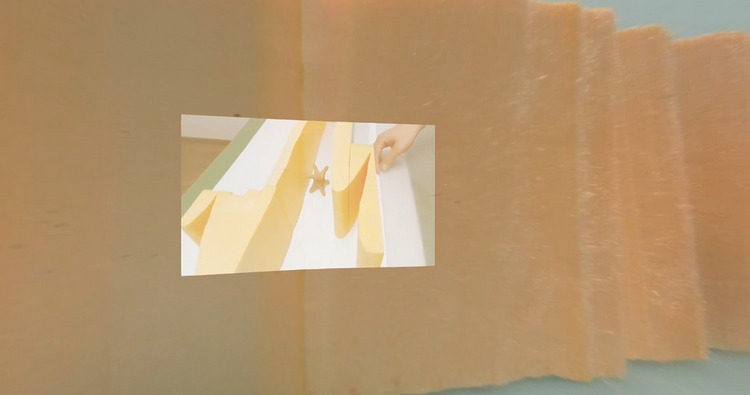Tbilisi Triennial bringing installations, shows exploring microclimate and education

Georgia's Video.Image platform and artist Sandro Sulaberidze created the work 'Where am I? Does the Full Circle Describe Reality?' for exploring the question of whether digital spaces can substitute the physical world. Photo: Tbilisi Triennial
A roster of contemporary artists and collectives from Georgia and abroad is bringing their works to the fourth edition of Tbilisi Triennial, with the event themed around Microclimate/Education looking at ways of creating a dynamic environment for learning.
In seven locations, mostly in capital Tbilisi, creatives ranging from Berlin's Floating University to Korea's Eelkwon Kim are presenting their works along with Georgian artists from Circe Platform's Maka Kiladze to a collaborative show involving the Georgian video art archive and Sandro Sulaberidze.
In their summary for the latest Triennial edition, organisers from Centre of Contemporary Art - Tbilisi have said their event "brings together two strands of inquiry" that have characterised their platform over the past 10 years - site-based practices and educational experimentation.
They have introduced their look at microclimate as "certain dynamic equilibriums, certain atmospheres of exploration, lie at the heart of true learning processes", with the dynamic representing a space "where the real work lies".
Microclimate/Education will look to focus and encourage the construction of this environment by bringing together makers, thinkers, and learners who engage in the specificity of place and who expand conditions of learning
- Tbilisi Triennial organisers
In this attempt, the event has been hosting works like the interactive video by Sulaberidze and the Video.Image project, unveiled at the opening earlier this month at CCA and exploring the question of whether digital spaces can substitute the physical world in the wake of its assumption of wider roles in the pandemic.
Entitled Where am I? Does the Full Circle Describe Reality?, the panoramic 360-degree video produced in 2020 is a "deliberate manipulation of geometric, spatial and perceptual perspectives by the author, where he tries to create fictional layers in an imaginary dimension". It was brought to the audiences of the Triennial through video editing by Yuri Bursulaia and sound by Jakob Köchert.
The opening show also introduced the Social Design - Arts as Urban Innovation MA programme of Vienna's University of Applied Arts, which also brought a look at the effects of the separation of public and private spaces during the Covid-19-related lockdowns and associated limitations.
Denmark's Aarhus-based Institut for (X) are also featured in the programme with their installation imagining a classroom imbued with notions that contribute to "liberatory" and "transformative" qualities, and asking the question of whether such space could "empower us to live more fully and bravely".
The installation is also seen as presenting and examining "the practices and philosophies" of the Aarhus-based cultural platform that are "shaping its educational and collaborative approaches".
The Triennial and the Georgian representation of Goethe Institute have also teamed up to feature a project by Floating University of Berlin, with the work developed and realised by Felix Wierschbitzki in cooperation with Pjorkkala.

Water Engine by Felix Wierschbitzki was presented at this year's Triennial, at the River's Magic Garden location in Tbilisi. Phooto: Tbilisi Triennial
Water Engine represents the institution's investigation of the topic of access to clean water, based on its filtration and evaporation systems, created at a Triennial location to transform rainwater into potable one. The creators have explained the process of movement and filtration producing the end result in the mechanism.
After the filtration process, the elixir of life can be drunk in the oasis to recharge your batteries for the next round on the seesaw. The multifunctional space as a meeting point also shows some impressions of the work of Floating University in an exhibition format
- Water Engine summary
The creation comes via Wierschbitzki, who "specialises in bottom-up reconstruction architecture as well as planning in the context of refuge", the Berlin-based collective has said. The creative has produced works benefitting a range of communities, from the nomads of Mongolia to Gaza refugees in Jordan.
These and other explorations, installations and shows are part of the Triennial that continues the initiative launched by CCA in 2012. The Tbilisi event became an associated member of the International Biennial Association two years after its creation.
This year's edition is running at CCA, ArtArea venue, Cube In Context, Rivers Magic Garden location, Goethe Institute and Khudadovi Forest in Tbilisi, with the final location coming at Uplistsikhe in the east of the country.
The fourth Triennial is set to run through October 31.
 Tweet
Tweet  Share
Share